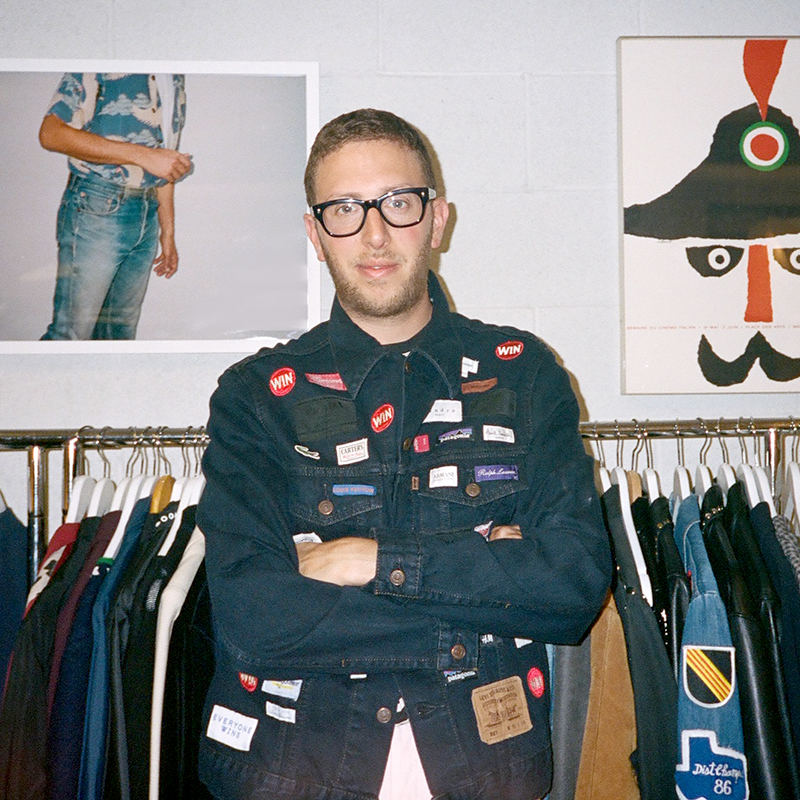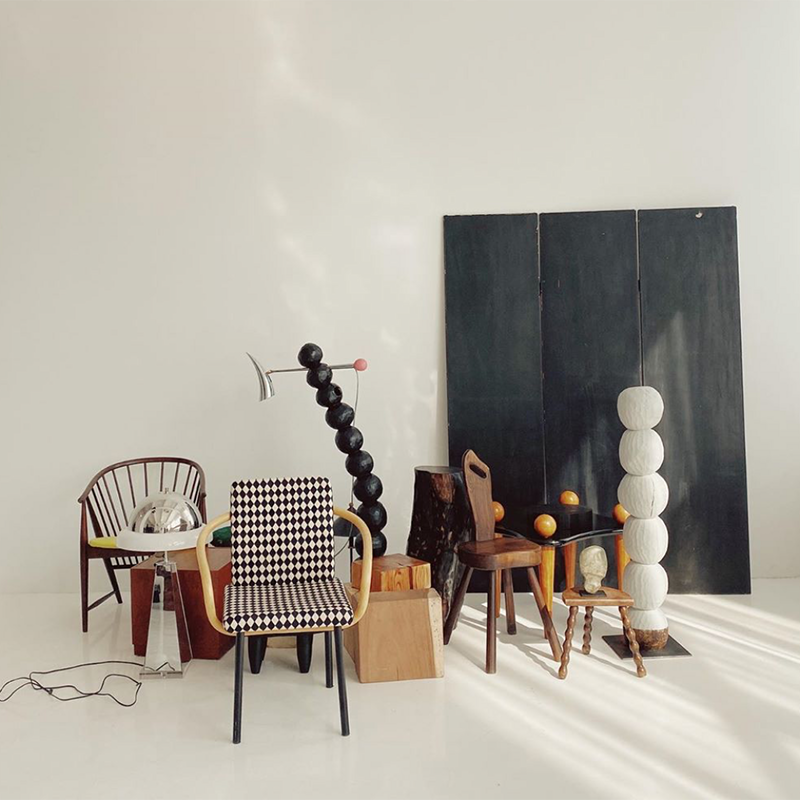
as told to Jonathan Vatner
Alan Eckstein, Advertising and Marketing Communications ’12
I co-founded Timo Weiland, my first fashion label, when I was at FIT. I worked till 3 every night and woke up and went to class. It was a super creative time, because there were no limits. We did Timo for 11 years, until 2016, when we stopped.
I was broken by the industry. Capitalism makes it so that few designers can make clothing well. It’s all about scale, scale, scale. People are pushing to make clothing the quickest with the mentality that if it falls apart, it’s good, because it’s time to make something new. Does anyone need this stuff? Does anyone want it? And how long does it make you happy?

Everyone Wins, my new clothing line, came out of that. “Nothing new” is the idea. I buy vintage designer clothes and style them up with patches and other embellishments. I switch out the buttons, or I take two shirts of different colors and swap out the components to make color-blocked shirts. I also take Levi’s and Wrangler jeans from the ’70s, ’80s, and ’90s—they’re more durable than anything else on earth—and I wash, repair, and taper. When they’re done right, they’re so juicy.

I also started a furniture line, Somerset Studios, with the same ethos. I look to auctions and online for broken furniture, things that were made very well and got mismatched or overlooked because they’re filled with scratches or are missing hardware. I update them with new upholstery, I sand out the scratches and apply teak oil or search for missing parts. I’ve been taking all this Richard Schultz mesh outdoor furniture and repurposing it for indoors. There’s no scalable model in this business: I’m not going to become a millionaire. And I’m OK with that.
I just opened a huge store in Williamsburg, Somerset House, to sell both lines, along with rare exotic cars by my friend Rami Fetyani. I could never afford this space—the rent would be around $45,000 a month. But stores are in flux right now, so I found a landlord willing to do a revenue-sharing deal. I stage the space, and they get a percentage of sales until someone comes in who can afford the premium price tag. Everyone wins.